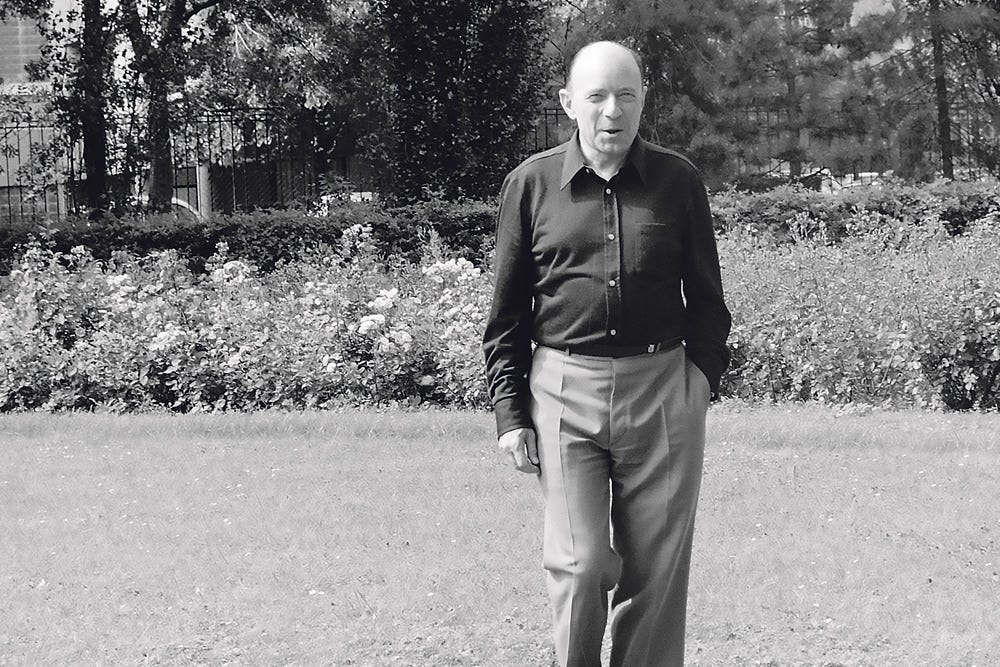Some voices in the Christian community lament what they describe as the victory of Marx, Freud, and Nietzsche in the current debates over human sexuality (Jaques Rousseau gets some shade too). In response, some in the Christian community want to reclaim the Plato and Aristotle of early Christianity as a way to return to universal truth. Protestant Christians who make this move seem to forget Luther’s diatribe against Aristotle, though they don’t usually mind his penchant for patriarchy. Believing their opposition to these godless narratives to be grounded in some form of objective truth, they fail to recognize the ideological perspective undergirding the new forms of mythology they create.
Jacques Ellul describes what he sees as the religious nature of contemporary secular society this way:
Never have people believed as much, everything and nothing. The modern world is above all else a religious world. It is loaded with religions…all are purely and specifically religious attitudes. The modern world is not really secularized, in spite of all the absurd ballyhoo based on a whole series of misconceptions, and on an extremely superficial analysis. This is essentially a world of the sacred. The political enemy is “damned.” Wars are ideological wars, that is to say, wars of religion. Social movements are sacred. Revolution is an act of God…The most that can be said is that modern humans have completely desacralized the natural environment, they have transferred all the sacred to the cultural and social.
Ellul criticizes the contemporary turn to technology, science, and economics in modern life, showing how these forces take on religious characteristics. However, this critique applies just as much to the overtly religious and moralist arguments Christians use to combat these perspectives. As part of this culture war, some Christians claim God as their ally, baptizing their methods with the jargon of spiritual warfare. They fail, however, to recognize their own ideological tendencies. Lewis Smedes, in his book Sex for Christians, discusses how a polarized approach to sexuality ends up creating two forms of idolatry as the sex act is imbued with either spiritual ecstasy or taboo.
For Ellul the gospel is about disenchantment and desacralization as it proclaims a message of liberation. In Jesus Christ God frees humanity from every false ideology so we might live as human creatures in the world. The gospel is iconoclastic, freeing the world from the oppressive forces of idolatry, allowing it to exist as the good creation in relationship with God. Applied to human sexuality, this means the gospel frees sexuality and gender from the over determining tendencies on both the right and the left. Sexuality is not absolute—it is not the ultimate meaning of what it means to be human, nor is it a shameful act grounded in the fall. Sexuality is an important part of what it means to be a relational human creature.
Framing the issue this way helps us see that our “struggle is not against flesh and blood”. The fight is not against our neighbor who thinks or acts differently than us, the struggle is against the ideological perspectives that distort our ability to listen to and empathize with each other. Ellul puts it this way:
The fight of faith to which we are committed is not a fight against human beings. It is not a question of destroying humans, of convincing people that they are wrong. I tis a fight for human freedom. Reinserted into a sacred, a prisoner of myths, the modern individual is completely alienated in modern neo-religions…To smash these idols, to desacralize these mysteries, to assert the falseness of these religions is to undertake the one, finally indispensable liberation of the person of our times.
This brings us back to the problem of sin, which is the problem of power and domination. Nuanced arguments are not welcome because they don’t call for the complete defeat and rejection of those who think differently. When the focus is on “winning”, Ellul’s perspective is easy to dismiss. But that’s the point—Ellul wants us to see that the gospel is not about winning; it’s not about defeating the enemies of some culture war. The gospel is the proclamation that in the death and resurrection of Jesus Christ the powers of sin and death have already been defeated. In the resurrection of Jesus Christ God reminds us of who we were created to be, so we might live as human creatures in right relationship with God and neighbor. The task of the church is to bear witness to this new reality through love and grace.





